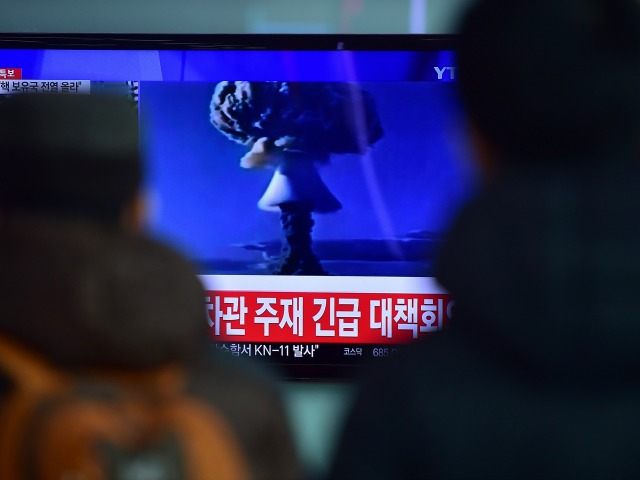The annual threat assessment from Director of National Security James Clapper included some grim news about North Korea, which is evidently restarting its plutonium production reactor at Yongbyon, and has developed missile technology that can reach any part of the continental United States.
Clapper’s assessment said that North Korea “has been operating the reactor long enough so that it could begin to recover plutonium from the reactor’s spent fuel within a matter of weeks to months,” as reported by the BBC. The reactor will make enough plutonium for one nuclear bomb per year.
Pyongyang still lacks the technology to miniaturize a nuclear warhead enough to fit on its intercontinental ballistic missiles, although it has made claims to the contrary. Clapper said the communist regime remained committed to developing such a weapon and “posing a direct threat to the United States.”
The North Koreans have also taken “initial steps toward fielding” a mobile ICBM system, although Clapper’s report notes it has not been flight-tested yet.
As for the range of their missiles, the Daily Signal reports that Sunday’s satellite launch from the rogue regime was also a test of missile technology, which established the Taepodong-3 ICBM may now have a range of 13,000 kilometers, good enough to hit any part of the continental United States.
North Korea’s satellite launch/missile test was a flagrant violation of U.N. Security Council resolutions, while reactivating the Yongbyon reactor broke commitments it made during previous disarmament deals.
U.S. efforts to bring tougher U.N. sanctions against North Korea have been consistently stymied by China, which denounces such measures as “provoking tension” and “destabilizing” the Korean Peninsula.
China has also opposed U.S. deployment of the THAAD ballistic missile defense system to South Korea, as has Russia, once again citing the potential to “destabilize” the region.
Senator Ted Cruz (R-TX) struck a similar note, sending a letter to President Obama on Thursday to “express deep concern” regarding Obama’s “policy of ‘strategic patience’ toward the Democratic People’s Republic of Korea, particularly in light of their recent nuclear test and satellite launch that also served as a long-range ballistic missile test.”
“Your administration has, for too long, hoped to achieve denuclearization through failed diplomacy and limited sanctions. The nuclear tests of May 2009, February 2013, and January 2016 suggest that ‘strategic patience’ with a country still officially at war with us is not working,” Cruz wrote.
Cruz called on President Obama to take several actions that might cause North Korea to change its behavior, including taking a tougher stance against China, deploying the THAAD system in South Korea, and putting North Korea back on the list of state sponsors of terrorism.

COMMENTS
Please let us know if you're having issues with commenting.